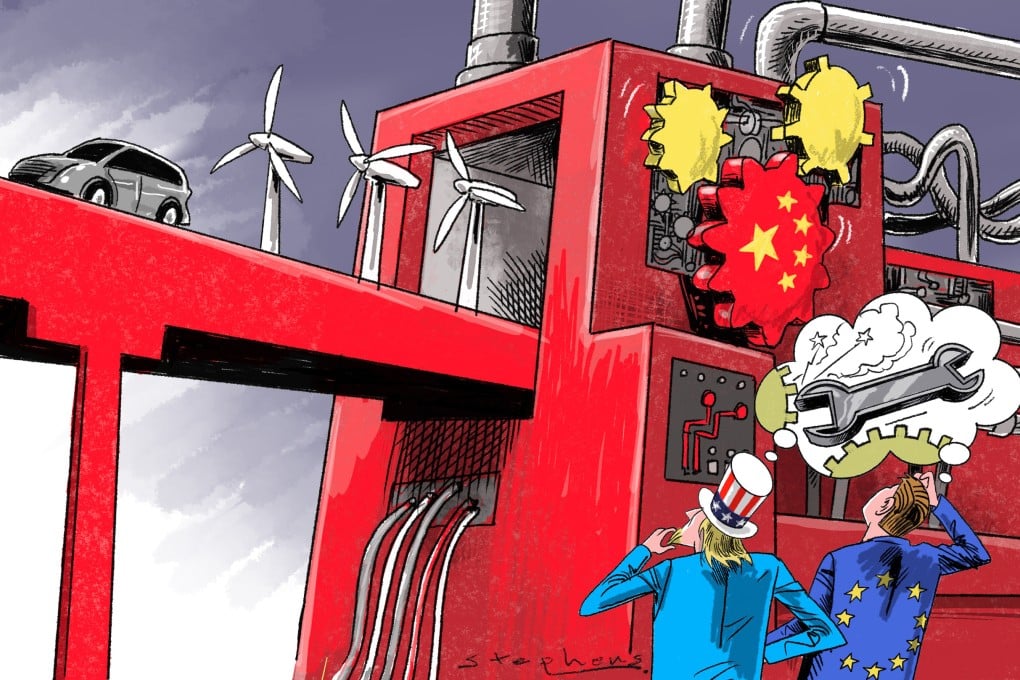Opinion | The real reason for US, EU complaints about Chinese overcapacity
- They are defensive because China threatens their dominance in advanced manufacturing, but fail to see how Chinese manufacturing helps the global energy transition and benefits Global South consumers

In their attacks, Washington and Brussels define “overcapacity” as a productive capacity that exceeds domestic demand. This narrow definition would make Adam Smith turn in his grave.
Exports normally happen when there is a surplus of goods after meeting domestic demand. All exports are thus the result of overcapacity. If nations could only produce enough to satisfy domestic markets, there would be no cross-border trade.
For centuries, the West has relentlessly pursued market access for their surplus goods. Imperial Britain even resorted to gunboats to open up China to its products, including opium, in the 1840s. Indeed, disposing of surplus products is an important feature of the West’s wealth creation. It is largely what has made the West rich and what will keep it prosperous.
Are the US and EU prepared to apply the same criterion for overcapacity to themselves and only sell their products domestically?

